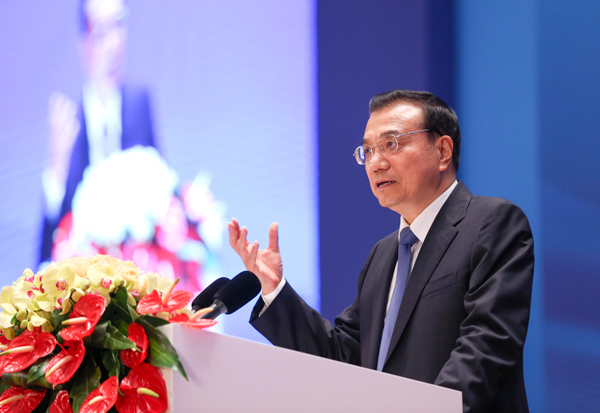China, CEE countries to accelerate win-win cooperation
(Xinhua) Updated: 2015-11-24 19:50
Infrastructure construction will offer more cooperation opportunities between Poland and China, as Central and Eastern European countries are the only way traveling from China to Europe, Duda said, adding that Poland, as Eurasia's logistics center, is vital in promoting Sino-European trade.
The two parties will speed up development of a railway running through Belgrade and Budapest to connect China, Hungary and Serbia, with the flagship project potentially starting soon.
Meanwhile, China will support CEE countries in their industrial upgrade with its advanced capacity in automobiles, steel, machinery and other sectors, Li said.
Trade in the agricultural sector will be another key cooperation field and China will support the import of quality produce from CEE countries through activities such as expositions, according to Li.
To facilitate bilateral investment, China is considering a 3-billion-US dollar investment fund and proposed to establish a "16+1" multilateral financial firm to expand financing channels and reduce financing cost.
Li called for more support and involvement of small and medium-sized enterprises (SMEs) in bilateral investment and trade to draw their wisdom and proposed setting up an innovation platform to serve bilateral cooperation of SMEs.
Li reassured the leaders that the Chinese economy is resilient with huge market potential and will maintain sustainable growth with ongoing structural reforms.
"China is expected to avoid the middle income trap by 2020 with an average annual GDP growth above 6.5 percent in the next five years and will contribute to global economic recovery and world peace," Li said.
China will import goods worth over $10 trillion US dollars and may invest more than one trillion US dollars overseas in the next five years, offering abundant growth opportunities to other countries.
Hailing China as "a long-term friend," Viktor said cooperation between Central and Eastern European countries is based on mutual respect and mutual benefit.
Austria has received 3.5 billion US dollars of investment from China, said Viktor, adding that the investment is not imposed on Austria by China through its economic power, but mutual benefit instead.
- Premier Li welcomes leaders at China-CEE meetings
- China-CEE trade, economic forum opens in Suzhou
- China proposes multilateral financial firm in CEE
- China-CEE trade, economic forum opens in E. China
- China, CEE cooperation opens new prospects for China-Europe ties
- China, CEE countries face golden opportunity to accelerate cooperation
- 4th Summit of China-CEE Countries to be held in Suzhou





